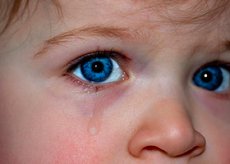Medical expert of the article
New publications
Sibling quarrels can lead to depression
Last reviewed: 01.07.2025

All iLive content is medically reviewed or fact checked to ensure as much factual accuracy as possible.
We have strict sourcing guidelines and only link to reputable media sites, academic research institutions and, whenever possible, medically peer reviewed studies. Note that the numbers in parentheses ([1], [2], etc.) are clickable links to these studies.
If you feel that any of our content is inaccurate, out-of-date, or otherwise questionable, please select it and press Ctrl + Enter.

New Year's holidays are getting closer, which means that soon beautiful Christmas trees will appear in our apartments and New Year's lights will be lit. For children, New Year is a special holiday, filled with joy and anticipation of gifts from Santa Claus, which he leaves under the tree.
But scientists say that even such a bright holiday as New Year can be marred by endless squabbles between brothers and sisters. The main reason for such quarrels and conflicts is that teenagers violate each other's personal space and cannot share things or the right to who will sit down to play a new game. Therefore, even gifts under the tree can bring no joy, but only inflame a new conflict.
Over the course of many years of research, scientists from the University of Missouri have studied the nature of conflicts that arise between teenagers, which is especially relevant in relation to brothers and sisters. Experts have come to the conclusion that there are two main types of conflicts. One of them flares up against the background of the child's personal space and attempts to occupy it with another. Such proceedings negatively affect the emotional health of children, and therefore parents should try to prevent conflicts on this basis between children.
"Our research shows that conflict situations involving violation of personal space are associated with low self-esteem and self-doubt in adulthood," says Nicole Campione-Barr, one of the study's psychologists. "Constant emotional upheavals can lead a child to deep depression within a few years."
Experts observed the relationships of 145 pairs of brothers and sisters over twelve months; the average age of the children was 12-15 years. The teenagers were asked to evaluate various types of conflict situations and note their frequency, intensity, and duration. Two main reasons for quarrels between teenagers were identified: violation of personal space and scandals that flare up due to injustice and inequality. Then the scientists compared the teenagers' answers, their condition, and the degree of anxiety and worry.
"While parents try to calm down their children and take a direct part in resolving the conflict, scientists say it is better for adults not to interfere," says Dr. Campione-Barr.
Experts recommend establishing rules in the home that everyone must follow without exception. First, before entering someone's room, you must knock and ask permission to enter. This will help to significantly reduce outbursts of discontent among teenagers, who are especially sensitive to intrusion into their territory. Also, quarrels and constant showdowns can be reduced by distributing responsibilities between children and a schedule, at least a conditional one, which would help children navigate whose turn it is to sit down to play a video game, etc.
If the relationship between brothers and sisters is alarming and in addition to verbal squabbles, fists are used, and if parents are no longer able to calm down the raging teenagers, then you should not waste time, but contact a specialist as soon as possible.
Strong and healthyfamily relationships are extremely important in later life.


 [
[